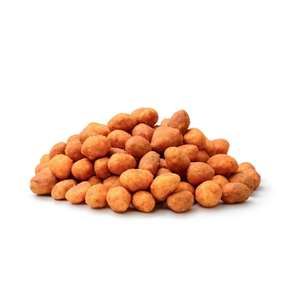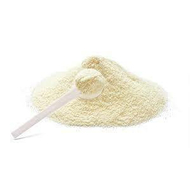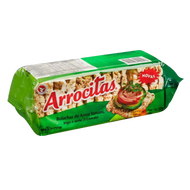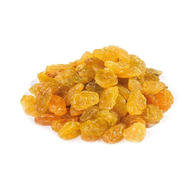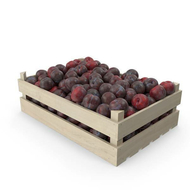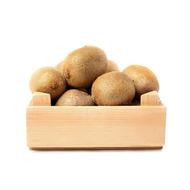Mani japonés, which literally translates to Japanese peanut, is a peanut-based fried snack. It is made out of wheat flour, spices, salt and a short amount of soy sauce, all mixed into a dough that covers the peanut.
Origins
Although its name comes from the Asian country, this type of dried fruit was originally produced in Mexico by a Japanese business man, named Yoshigei Nakatani, during the 40's. He had worked preparing mamekashi back in Japan, which is a traditional Japanese snack made out of a wheat flour mixture covered seeds, so he decided to bring this idea to the previously mentioned American country.
Nutritional information
The Japanese style peanut is made out of wheat flour, cornstarch, sugar, vegetable fat, water, salt, baking soda and soy sauce.
Peanut is an important source of good fats, and a moderate consumption helps prevent cardiac diseases, reduces cholesterol and even contributes to fat loss, as it provides a feeling of fullness and high energy doses. Therefore, people may include this snack into their regular diet, being ideal for any moment of the day.
Market overview and production
In Argentina, some companies dedicate only to its production, such as A&V, El32, Cris-Jor. Argentina is positioned as the third peanut world exporter, right after China and the U.S., and is also the first provider for the European Union.
The peanut-growing farms in Argentina are mainly located in the center and south regions of the Córdoba province, given the optimal weather and land conditions.
Related products and ideas
Peanuts can be easily turned into peanut butter. You only need to toast, grind and mix the nuts in a mixer for a couple of minutes until it reaches a creamy and soft texture, provided by the natural oils of the peanut.
Its bittersweet flavor combines perfectly with different aperitifs and can also be a great company for a fresh and cold beer. In Argentina, it is very commonly found in the "picadas", which are a combination of different snacks, cheeses, cold cuts and bread.
Keine Bewertungen gefunden
Complete your purchase on Pampa Global
We’ve simplified the checkout process! Orders are now completed through Pampa Global, our new platform that offers:
- Fast and secure checkout
- Extensive international catalog
- Competitive wholesale pricing

